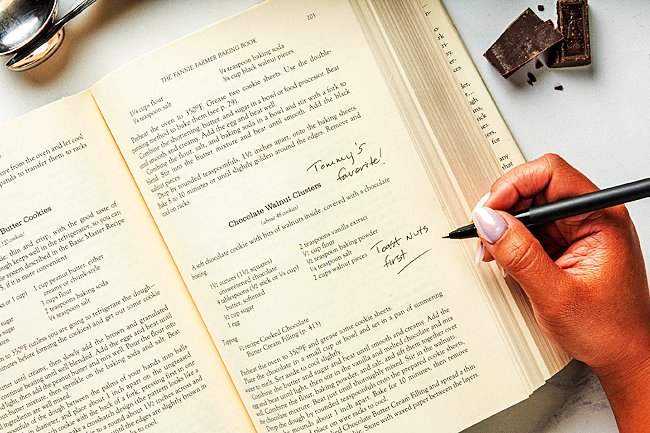THE WASHINGTON POST – I have loved books for as long as I’ve been reading them. Not just the words, which I’ve devoured with almost-too-fast enthusiasm, but also the books themselves: the smell of a new volume, the gentle swish of turning pages, the crackle of the binding of a hard cover as it’s opened for the first time.
Needless to say, I’ve always been a bit protective of my books, particularly the ones I’d save up for as a kid and buy at the school book fairs. Every torn page or bent corner used to make me cringe, and still does, sometimes.
The outrageous expense of college textbooks helped me start to get over my need for perfection. (Yes, it’s a constant struggle!) Once I realised used books came with the primary benefit of a much-reduced price, I had no choice but to loosen up a bit.
Another advantage of pre-loved textbooks was that they often came with wisdom from previous owners, in the form of margin notes or highlighting. And that same logic, I’m realising more and more, should apply to all my cookbooks.
You’d think being awash in cookbooks thanks to my job would somehow desensitise me to the appeal of a pristine volume, but it’s something I’m working on. Perhaps more than any other kinds of books you buy, cookbooks demand to be used, even messed up a little (or a lot). Every stain or dog-eared page should be a badge of honour.

After all, if I don’t write down my tweaks or tasting notes, how will I remember them next time? (I used to have a mind like a steel trap, and now, as a parent, it’s more like a sieve.) If I don’t scribble in the margins, how will my book end up in a used bookstore, prompting its kind purchaser to embark on a journey to find the family of the original owner and bringing them together with one of my grandchildren in a love story for the ages? (Has someone written this movie? Someone please write this movie.)
My Washington Post colleague Olga Massov, who has written multiple cookbooks, with more on the way, is an avid note scribbler.
“It’s beautiful, because you see that recipes are living, breathing things,” she said. For her, the ultimate sign of respect is writing in a cookbook, rather than not. She loves seeing how people have annotated her recipes.
“If I see notes in it, you’re getting a lot of utility out of it,” she said. Moreover, she sees writing in cookbooks as akin to journaling, capturing a particular moment in time and what she was thinking.
“It’s a little personal record of: ‘I made this. I loved this. I loved it so much that I want to make it again.’” My goal is to be more like Olga!
If, like me, you lean more on the hesitant side about defacing – ahem, writing in – a cookbook, there are alternatives to ease your conscience. The easiest solution is using sticky notes. Affix them to pages to mark favourite recipes, mark them with your notes, and you’re good to go. I already keep painters tape in my kitchen to label all types of containers, and using it in your books is a smart tip I picked up from chef, author and TV personality Christina Tosi’s book All About Cookies. The tape will stay on as long as you want it to and come off easily when you’re ready to see it go.
What should you write in your cookbooks? Well, anything you want, but notes related to the things you should be paying attention to before you even start cooking are all fair game.
Here are some ideas to get you started:
Verdict. Was the recipe a hit or a flop?
Yield. Did the recipe make the amount it said it would?
Time. How long did the recipe take you from start to finish?
Substitutions. What ingredients did you change, and did they work?
Advance prep. What did you make ahead, or what do you wish the recipe had told you that you could?
Instructions. Were the suggested cooking temperature and time accurate? – Becky Krystal


